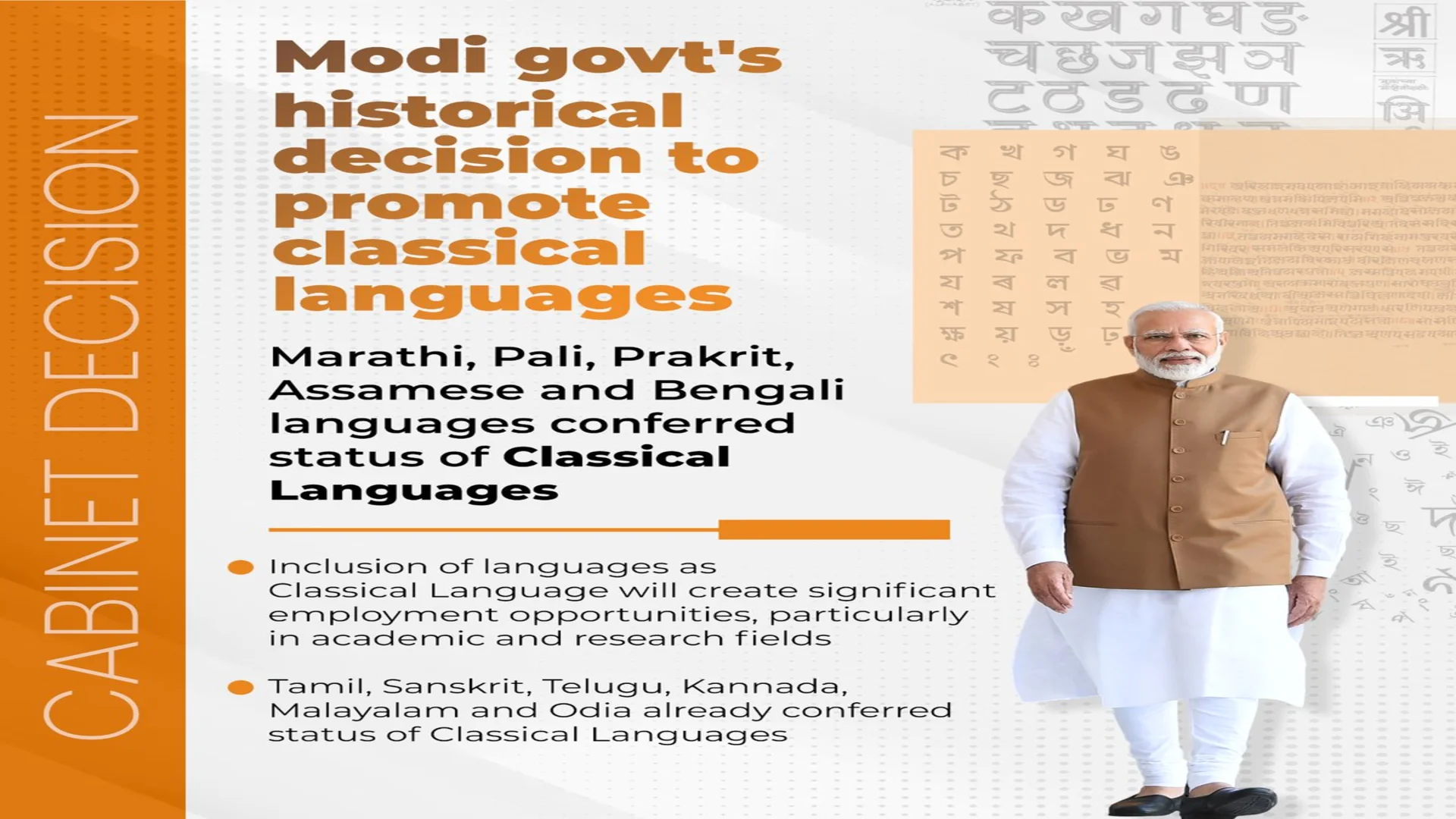Art and culture
According to a press release issued by the government on October 3, following demands from various states, the UPA-1 government decided to create a category of Indian languages known as “classical languages”, and lay down various criteria for the status. These included: High antiquity of its early texts/ recorded history going back more than 1,000 years; a body of ancient literature/ texts, which is considered a valuable heritage by generations of speakers; and an original literary tradition that is not borrowed from another speech community. On October 12, 2004, Tamil was notified as a classical language. The following month, the Ministry of Culture set up a Linguistic Experts Committee (LEC) under the Sahitya Akademi to examine proposals for the status of classical language. In November 2005, the criteria were revised. The new criteria pushed back the antiquity of early texts/ recorded history in the language to 1,500-2000 years from the earlier threshold of 1,000 years. It was also decided to find out whether there was a discontinuity between the classical language and its later forms or its offshoots. Sanskrit was declared a classical language on November 25, 2005. Subsequently, classical language status was conferred upon Telugu (2008), Kannada (2008), Malayalam (2013), and Odia (2014). On July 25 this year, the LEC under Sahitya Akademi unanimously revised the criteria for classical status. The criteria now included high antiquity of early texts/ recorded history over a period of 1500- 2000 years; a body of ancient literature/ texts, which is considered a heritage by generations of speakers; knowledge texts, especially prose texts in addition to poetry; epigraphic and inscriptional evidence; and that classical languages and literature could be distinct from its current form or could be discontinuous with later forms of its offshoots. The committee then recommended five more languages which fulfilled the revised criteria for classical language. They were Marathi, Pali, Prakrit, Assamese, and Bengali, which the government announced on October 3. It is also expected that national and international awards will be instituted to recognise and encourage achievements in the field of classical languages. National awards could be instituted for classical languages, and chairs in universities and centres for the promotion of these languages could be set up. Classical language status is expected to create employment opportunities in the fields of academics and research. The tasks of preservation, documentation, and digitisation of ancient texts of these languages will likely generate jobs in archiving, translation, publishing, and digital media.
